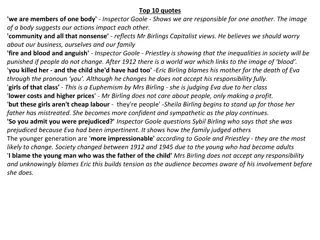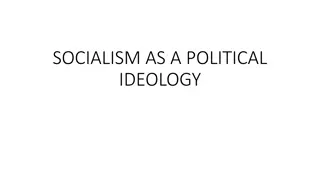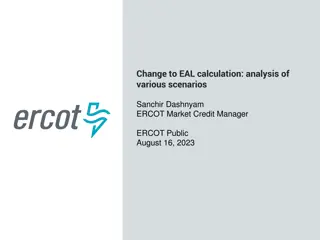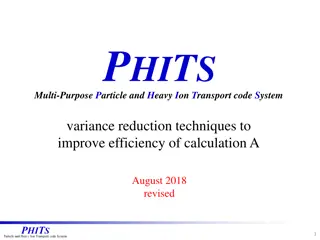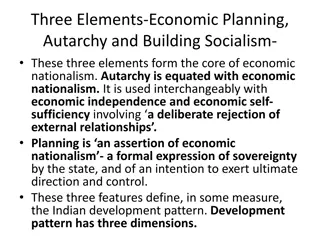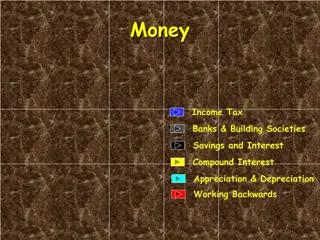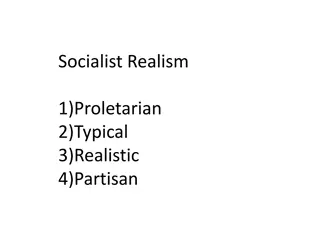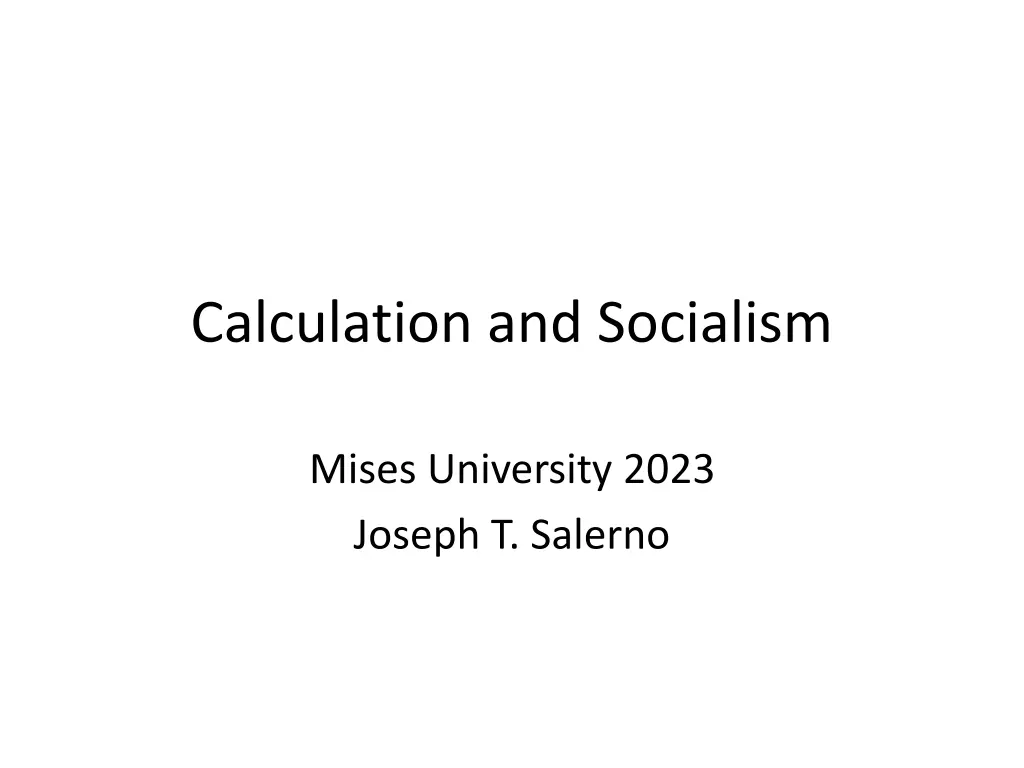
Understanding Socialism Through Economic Calculation & Utopian Visions
Explore the foundations of socialism through Mises University lectures and analysis of Ludwig von Mises's groundbreaking work on economic calculation in a socialist commonwealth. Dive into the distinctions between scientific and utopian socialism, examining the philosophies of influential figures like Charles Fourier. Discover the unique concepts of phalanstre cities, including collective production and communal living. Delve into Fourier's visionary ramblings about the stages of societal progression towards harmony and bliss.
Download Presentation

Please find below an Image/Link to download the presentation.
The content on the website is provided AS IS for your information and personal use only. It may not be sold, licensed, or shared on other websites without obtaining consent from the author. If you encounter any issues during the download, it is possible that the publisher has removed the file from their server.
You are allowed to download the files provided on this website for personal or commercial use, subject to the condition that they are used lawfully. All files are the property of their respective owners.
The content on the website is provided AS IS for your information and personal use only. It may not be sold, licensed, or shared on other websites without obtaining consent from the author.
E N D
Presentation Transcript
Calculation and Socialism Mises University 2023 Joseph T. Salerno
Misess Article Ludwig von Mises, Economic Calculation in a Socialist Commonwealth (1920): 1. destroyed the intellectual foundations of the case for socialist central planning; 2. was a revolutionary breakthrough In economic theory which demonstrated the nature and function of the price system.
Scientific Vs. Utopian Socialism UTOPIAN SOCIALISTS Charles Fourier (1772-1837) Henri Saint-Simon (1760-1825) Robert Owen (1771-1858) SCIENTIFIC SOCIALISTS Karl Marx (1818-83) Friedrich Engels (1820 -1895)
The Phalanstre Garden cities modeled after a grand hotel containing 1,500- 1600 residents and based on the phalanx, an ancient Greek military formation Each resident would be able to purchase accommodations according to his/her individual tastes and income All residents would be a stockholder in the city Collective production All would share meals in a communal kitchen Dirty work would be shared
Fouriers Ramblings1 19thcentury France was allegedly in the 5thstage of advancement, having passed through: 1. confusion; 2. savagery; 3. patriarchism; and 4. barbarity. After passing through two more stages it would approach the upward slope of harmony the final stage of utter bliss which would last for 8,000 years. Then however history would reverse itself, and society would regress through each stage back to the beginning. (Robert B. Ekelund, Jr. and Robert F. Hebert, A History of Economic Theory and Method, 5thed., pp. 159-60)
Fouriers Ramblings2 Fourier detailed the changes accompanying harmony : 1. 2. 3. 4. six new moons would replace the one in existence. a halo, showering gentle dew would circle the north pole. the seas would turn to Kool-Aid. all violent or repulsive beasts would be replaced by their opposites [and] would be commonplace and serviceable to mankind. Anti-lions would offer themselves to humans to be ridden and roasted anti-chickens would fly into human mouths. The human lifespan in the harmonic stage would stretch to 144 years and 5/6 of this time would be devoted to the unrestrained pursuit of sexual love. [Free love a part of almost all Utopian schemes] 5.
Response of the Classical Economists The incentive problem: Who will take out the garbage under socialism? The price system provides the needed incentives through the profit and loss mechanism (supply and demand) to supply the right goods in the right amounts ( invisible hand) Socialist answer: The New Socialist Man would work for the community welfare and not monetary profit. Both sides implicitly assumed that if the incentive problem could be solved socialism would be as productive as capitalism.
Marxs Brilliant Polemical Ploy Marx realized the harm that the crazy scribblings of the Utopian Socialists did to the socialist cause. He devised the doctrine of Scientific Socialism to counter them: 1. The inexorable laws of history dictated that socialism would replace capitalism just as capitalism had replaced feudalism and feudalism had replaced classical slave societies. 2. Therefore it was unscientific to speculate about what a future socialist society would look like or to try to speed up its arrival. Marx s writings, therefore, were mainly a critique of capitalism and its contradictions. (Das Kapital)
Misess Impossibility Thesis In a developed industrial economy with complicated production processes and many different kinds of capital goods, the rational allocation of resources is impossible without economic calculation using actual market prices. A socialist economy is impossible because it cannot generate prices for capital goods and natural resources.
Misess Argument 1. Socialism abolishes private property in capital goods and natural resources. Since the socialist State is sole owner of the material factors of production, they can no longer be exchanged. Without exchange there can be no market prices. Under socialism, therefore, the State cannot calculate the costs of production for the goods its produces. Without calculation of profit and loss, socialist planners cannot know the most valuable uses of scarce resources and therefore a socialist economy is impossible 2. 3. 4. 5.
The Essence of Socialism The essential mark of socialism is that one will alone acts. It is immaterial whose will it is. . . . The main thing is that the employment of all factors of production is directed by one agency only. One will alone chooses, decides, directs, acts, gives orders. The distinctive mark of socialism is the oneness and indivisibility of the will directing all production activities within the whole social system. (Ludwig von Mises, Human Action, pp. 691-92)
The Preconditions of Economic Calculation 1. private property in all stages of goods, including capital goods of every kind. freedom to exchange all kinds of goods and services. sound money i.e., a money whose value is independent of political influence, such as gold. Socialism abolishes all three of these preconditions and therefore nullifies economic calculation. 2. 3.
Production Function for a Car P tons steel + Q hrs. machine time + R hrs. unskilled labor + S hrs engineering labor + T sq. ft. factory space + U kilowatt hrs. electricity + V gallons paint + . . . = BMW M500i
Economic Calculation How can we calculate the cost of producing this car under socialism? In the market economy all resources ( steel, engineering services, electricity) are exchanged and have market prices, so firms can calculate costs of anything. Assume that average cost of producing the car is $50,000. Firms forecast the future sale price ($60,000 or $45,000) and make the decision to produce or not accordingly. Also, calculation allows firms to determine what technology is least costly: more labor and less equipment or more computerized robotics and less labor. Titanium, steel or fiber glass bumper?
Direct Valuation in Crusoe Economy Crusoe s Scale of Value for Allocating Labor (3 hour units) 1st2 fish 2nd3 lbs. wild mushrooms 3rd8 coconuts 4th1 sack berries Quick Quiz: What is the cost of producing a rabbit that requires 6 hours to hunt and catch? Can Crusoe allocate his labor rationally without calculation using cardinal numbers?
Production in the Former USSR Gross output planning GOSPLAN Problems Difficult to specify qualities and varieties of product. Cases of agriculture, women s clothing, construction, chandeliers etc.
Social Appraisement Process The process by which the market economy driven by entrepreneurs determines the money prices of all resources to be used in economic calculation of costs of production.
How Social Appraisement Works Future Prices of Consumer Goods (1. appraises future prices based on present consumer prices and forecasted changes in S and D) ENTREPRENEURS (2. bids based on anticipated future consumer prices) Current Structure of Resource Prices
The Intellectual Division of Labor 1. Everyone is involved in generating the price structure consumers, capitalists, entrepreneurs, and laborers through their valuations, choices and exchanges. 2. Prices are a genuine social phenomenon everyone contributes a little bit to the formation of the price structure but it exists beyond the individual human will and mind. 3. The price structure allows entrepreneurs to compute money costs of any conceivable production process and compare costs to anticipated prices of the product.
Socialist Response to Mises 1 Na ve Marxist Responses, 1920s 1. Calculation in Kind (adding apples and oranges) 2. Calculating with Labor Hours 3. Assuming a Stationary Economy
Socialist Responses to Mises 2 Sophisticated Neoclassical Responses 1. The Trial and Error Method 2. Market Socialism (Oscar Lange, Abba Lerner) 3. Mathematical Solution (Enrico Barone, H.D. Dickinson)
Austrian Replies: F. A. Hayek and Lionel Robbins 1. Impracticality of acquiring the necessary knowledge and solving equations in the pre-computer age 2. Impracticality of changing prices in a timely manner and the loss of knowledge in prices.
Austrian Replies: Mises 1. The market economy is an entrepreneurial and not a managerial process in which the creation and destruction of firms and production processes are a regular occurrence It is impossible to allocate capital without real market prices and stock, bond and commodities markets. Equilibrium prices yielded by mathematical equations are useless for a dynamic economy because they do not take into account change in tastes, technology etc; profits and losses; and changes in the kinds of capital goods needed. 2. 3.





